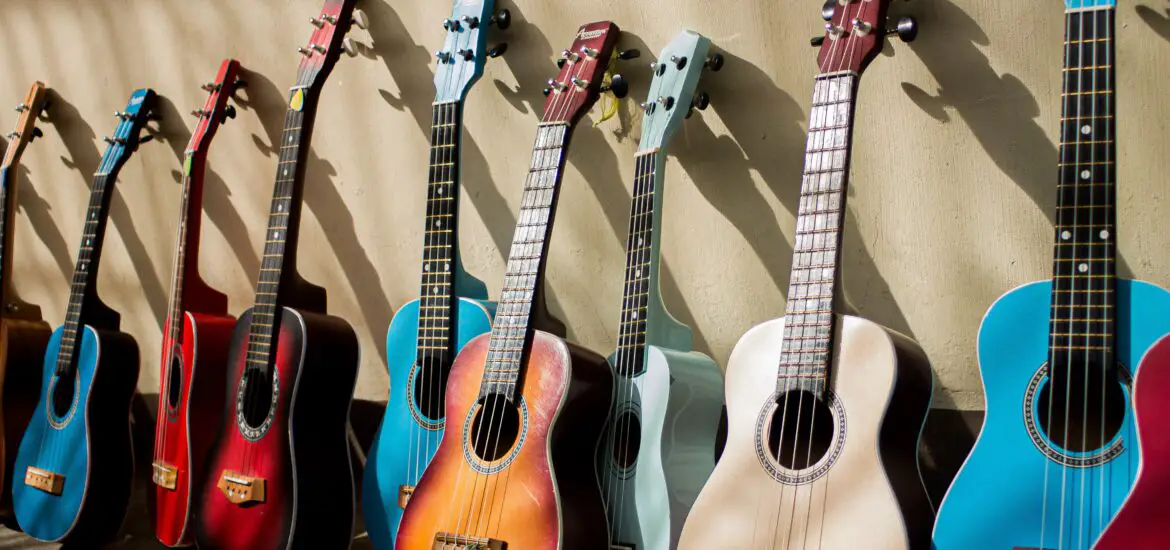If you’re intrigued by the question, “Why do guitar players have so many guitars?” you’re not alone. This article aims to demystify the reasons behind this common phenomenon in the guitar community. From sonic versatility to emotional connections, let’s explore the multifaceted explanations for why guitarists often own multiple instruments.

Different Sounds and Tones
At first glance, guitars may look similar. However, the truth is that each type of guitar produces a different sound, attributed to its construction, materials, and even the strings used. For instance, a Stratocaster is known for its bright and punchy tones, suitable for blues and rock.
On the other hand, a Gibson Les Paul has a fuller, richer sound that many guitarists favor for hard rock and metal. The variety in tonal quality offers musicians the flexibility to match the perfect guitar with a particular piece of music, be it a soulful acoustic number or a high-energy electric performance.
Versatility in Musical Styles
Just as an artist uses different brushes for various strokes, a guitarist often requires multiple types of guitars to adequately express themselves across genres. Imagine trying to perform a flamenco piece with a heavy metal guitar; the sonic mismatch would be jarring.
From nylon-string classical guitars that offer a soft and full sound for intricate fingerstyle techniques to hollow-body guitars favored for the warm, rich tones in jazz, the variety allows the guitarist to adapt to different musical environments seamlessly.
Read more guitar topics here – Guitar Questions: Get the Right Answers to Your Burning Questions
Professional Requirements
In a live show setting or a recording studio, professionals often switch between multiple guitars. This isn’t an act of showmanship; it’s a practical necessity. In a live performance, for example, if a guitarist breaks a string, a backup guitar can be a lifesaver.
Additionally, certain songs in a set might demand quick transitions between acoustic and electric guitars. In recording sessions, having a range of guitars at one’s disposal ensures that the musician can achieve the specific tone and texture needed for each track, resulting in a more polished final product.
The Emotional Connection
While practical reasons abound, the emotional aspect of owning multiple guitars cannot be overlooked. Many guitarists form a deep sentimental bond with their instruments, associating them with particular life events, musical milestones, or even periods of personal growth.
This emotional attachment can make each guitar irreplaceable, thus adding to the number of guitars a musician owns. Each guitar ends up holding a unique place in the guitarist’s heart and musical journey.
The Influence of Iconic Musicians
Iconic musicians often have an extensive collection of guitars, which in itself serves as an inspiration to aspiring guitarists. When a budding musician sees their idols like Eric Clapton or Jimi Hendrix owning and playing a wide array of guitars, it makes the idea of owning multiple instruments seem not only normal but something to be desired.
This element of hero-worship or emulation creates a cultural context where having several guitars is viewed as a symbol of serious musicianship.
Why Do Guitar Players Have So Many Guitars?: Conclusion
In conclusion, the multifaceted question “Why do guitar players have so many guitars?”, yields an equally multifaceted answer.
Whether it’s the need for different sounds to suit varied musical styles, professional requirements of live performances and recording, emotional bonds formed with each instrument, or the inspirational impact of iconic musicians, there’s more to this phenomenon than meets the eye.
It’s not just about owning multiple items; it’s about equipping oneself with the right tools for artistic expression, professional competence, and personal satisfaction.